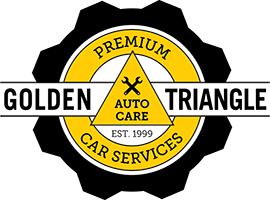
Call Us Now
303-573-1335
 Driving on Interstate 70 through Colorado’s high country can be beautiful … and treacherous, particularly between September and May. Weather can be, quite literally, all over the map. Within a matter of hours, climate and road conditions can swing from sunny and dry to wet, slushy, snowy, and icy. Are you ready and do you know the most recent rule changes regarding traction laws in Colorado?
Driving on Interstate 70 through Colorado’s high country can be beautiful … and treacherous, particularly between September and May. Weather can be, quite literally, all over the map. Within a matter of hours, climate and road conditions can swing from sunny and dry to wet, slushy, snowy, and icy. Are you ready and do you know the most recent rule changes regarding traction laws in Colorado?
Most drivers are responsible when it comes to their vehicle’s winter-worthy capabilities, swapping out summer tires for winter tires and packing a set of chains in their trunk or tool kit. Between September and May, the Colorado Department of Transportation (CDOT) expects two things:
1) either snow tires, tires with the mud/snow (M+S) designation, or a four-wheel/all-wheel drive vehicle; and
2) all winter-worthy tires to have a tread depth of not less than 3/16 of an inch. But who’s checking the tread depth on those tires? Your Denver auto mechanic should be doing that for you when they swap out your seasonal tires or doing the recommended 30-point inspection each time your oil is changed.
Here at Golden Triangle Auto Care, we pay attention to these details and work to educate our customers. Here’s what every informed consumer and responsible Colorado driver needs to know about the updated Interstate 70 Traction Laws that went into effect September 1, 2019, and how to avoid getting ticketed or fined if you are found in violation of the law, courtesy of our friends at Colorado department of Transportation (CDOT).
Traction Law (Code 15)
During an active Traction Law (also known as a Code 15), motorists must have either snow tires, tires with the mud/snow (M+S) designation, or a four-wheel/all-wheel drive vehicle.
Starting Aug. 2, 2019, the legislation updated requirements for drivers using state highways during winter months. Specifically, it changed the required minimum tire tread for vehicles on snowy roads to 3/16 of an inch. The statute also says that the minimum tire tread for dry roads is 3/16 of an inch. You can also install chains or an alternative traction device (like AutoSock) to be in compliance with the law if your tires aren’t adequate.
Passenger Vehicle Chain Law (Code 16)
During severe winter storms, CDOT will implement a Passenger Vehicle Chain Law (also known as a Code 16). This is the final safety measure before the highway is closed.
When the Passenger Vehicle Chain Law is in effect, every vehicle on the roadway must have chains or an alternative traction device (like AutoSock).
Fines
Motorists driving with inadequate equipment when a Passenger Vehicle Traction Law or Chain Law is in effect could be fined more than $130.
If a motorist blocks the roadway because he/she has inadequate equipment when a Passenger Vehicle Traction Law or Chain Law is in effect, he/she could be fined more than $650.
Not sure what the tread depth is on your tires? There are common gauges that will measure that depth for you … or just bring your car to Golden Triangle Auto Care, your downtown Denver auto mechanics conveniently located at the corner of 11th and Speer, and we’ll check your tires out and get you safely back on the road.
Sources:
Passenger Vehicle Chain Law Code 16
Motor Vehicles & Traffic Regulations
